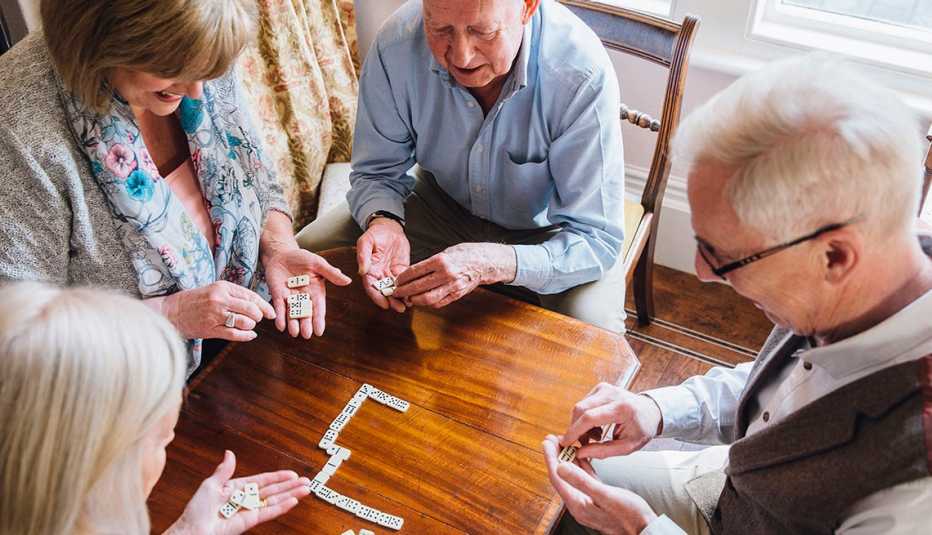Staying Fit


Sharon Kleinhelter started noticing changes in her husband, J.P., in 2007, but he did not receive an official diagnosis of mid-stage Alzheimer's disease until 2012, when he was age 66. At the time, he was still working at his Indianapolis construction business, had many friends and was very outgoing.
From that point on, Kleinhelter tried to ensure that her husband continued socializing. But as the disease progressed, it became more difficult to take him out into the community.


AARP Membership— $12 for your first year when you sign up for Automatic Renewal
Get instant access to members-only products and hundreds of discounts, a free second membership, and a subscription to AARP the Magazine.
“J.P. was a very social, friendly, nice guy. I couldn't control him. As nice as he was, he could be disruptive,” she recalls. “He automatically touched people's arms, and some don't like that. He was just friendly. He couldn't talk quietly and couldn't sit still for long. When he wanted to go, I had to go, too. It became too hard.”
Then, Connor Prairie, a living history museum that recreates 19th-century life in Fishers, Indiana, where the couple lived, began offering a memory café — a social program for those living with dementia and their caregivers.
“For J.P., I think it was just that safe place to go to where it didn't matter if he said the same thing over and over and over again,” Kleinhelter says. “Everybody understood, so that made me comfortable, too.”
Antidote to isolation
Bère Miesen, a Dutch psychiatrist, is credited with creating the first memory café in the Netherlands in the late 1990s to raise awareness of and fight stigmas associated with dementia and to provide support for patients and their caregivers.
After spreading across Europe, the concept took root in the United States in 2008, according to Dave Weidderich, founder of the Memory Café Directory, which catalogs and provides information on such meeting spots.
Top states for memory cafés
These are the 10 states with the most memory cafés as of June 2022, according to the Memory Café Directory:
1. Wisconsin (138)
2. Massachusetts (93)
T3. Illinois (41)
T3. Minnesota (41)
5. Washington (37)
6. Texas (31)
7. Pennsylvania (29)
8. California (21)
9. Virginia (19)
10. North Carolina (18)
To find a memory café near you, search the directory or contact your local Area Agency on Aging, Alzheimer's Association chapter or the Alzheimer's Foundation.
Weidderich’s site now lists more than 1,000 in-person and virtual memory cafés across the U.S. and in four other countries. They are held in restaurants, coffee shops, hospitals, libraries, museums, schools, colleges and universities, community and senior centers, senior living communities, and faith-based organizations. All offer socialization, and many hold events centered around history, music, dancing and other subjects.
Memory cafés are not a form of respite care. Rather, they offer a place where caregivers and care recipients can socialize and connect with others in similar situations.
J.P. Kleinhelter passed away in June 2020. As she looks back on her caregiving experience, Sharon Kleinhelter realizes how isolated she became while caring for him.
“I wish people could know from the start of the diagnosis that memory cafés are available for them,” she says. “It lets them know they’re not alone in this caregiving and they know they have a safe place to go.”
As a longtime caregiver for my dad, Robert, who had Alzheimer’s and lived with me for several years before his death in June 2018, I understand the challenge of providing socialization.

































































More From AARP
Leran About Columnist Amy Goyer
Caregiving expert and media authorityCaregivers Confront the Stigma of Dementia
Help family and friends have better understanding of the illness